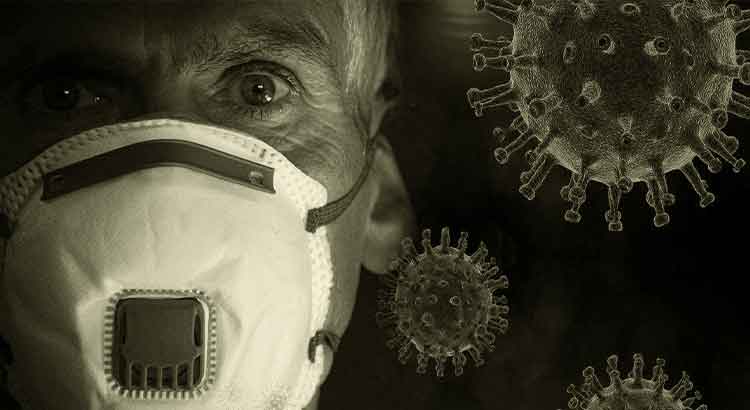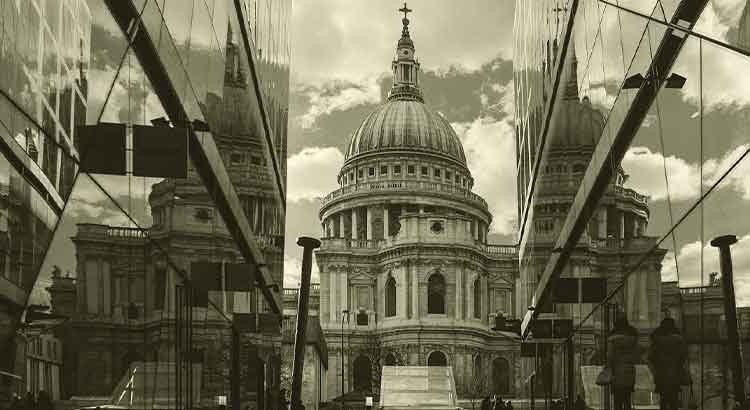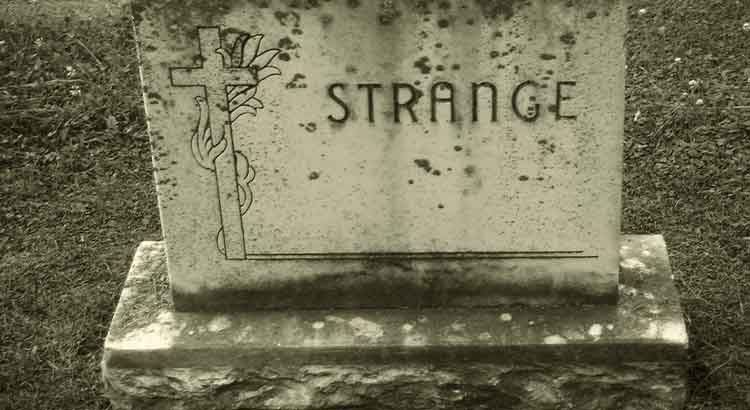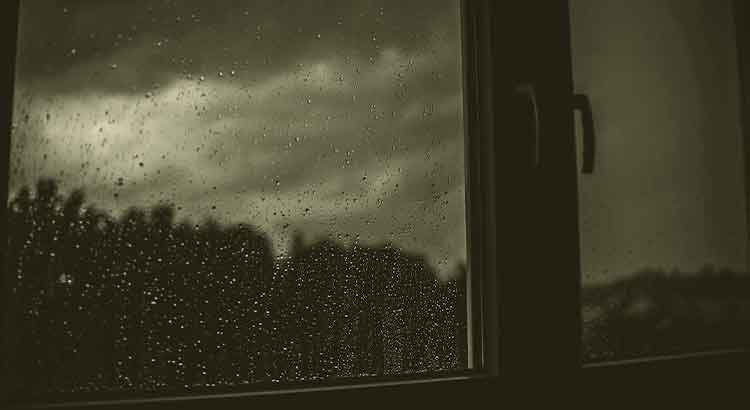I feed my misanthropy of delicacies and she, in response, gets fat. Then I completed another year, smiling, and this time with a Chesterton volume in my hands.
Chesterton… If I had read him at twenty, I might have idolized him… But that is the way it is, and good thing it is! Behold, looking at the pages of Orthodoxy, I get irritated. Then, however, I exalt myself. And the summary of my judgment, after the calm of the reflections, is this: great reading! Because that is what great readings leave: strong impressions.
So we are going to dig into them, expose what stirred me up in this great work. Chesterton begins:
The men who really believe in themselves are all in lunatic asylums. (…) If you consulted your business experience instead of your ugly individualistic philosophy, you would know that believing in himself is one of the commonest signs of a rotter. Actors who can’t act believe in themselves; and debtors who won’t pay. It would be much truer to say that a man will certainly fail, because he believes in himself. Complete self-confidence is not merely a sin: complete self-confidence is a weakness.
They sound like words taken from my thoughts. However, I make the note: how far is Chesterton from the Christians today! Modernity—Christians included—is contaminated to the nail of this stupid feeling called by Chesterton as self-confidence. When wisdom, whether one likes it or not, begins exactly in self-distrust.
There is a diffuse confidence today, both in man and in the future, which in Christians manifests itself through indiscriminate hope. The average Christian of our days does not hesitate, not for a single second, about what the future holds for him or about his own possibilities. What is no sign but of his absolute weakness…
Another virtuous passage:
Imagination does not breed insanity. Exactly what does breed insanity is reason. Poets do not go mad; but chessplayers do. Mathematicians go mad, and cashiers; but creative artists very seldom.
What leads to insanity? The obsession with finding all the answers, in having absolute control over the environment. Therefore a mathematician, a scientist, often ends up unable to perceive his own insignificance, his own vulnerability, the limitation of his means of action and, considering himself capable of deciphering all the variables, goes mad, collapses, because the human possibilities are, at most, simply limited.
Chesterton continues, in a frank attack on modern positivism:
In so far as religion is gone, reason is going. For they are both of the same primary authoritative kind. They are both methods of proof which cannot themselves be proved. And in the act of destroying the idea of Divine authority we have largely destroyed the idea of that human authority by which we do a long-division sum.
I like this candor. Chesterton also points out, in his famous sentence: the problem in denial of God is what is put in its place. Fatally, believing in human possibilities is of peerless childishness.
Well. Behold, Chesterton begins to irritate me. I am already upset with half a word of demagogy, half a verb to encourage political action… And if I cultivate resignation and silence, then Chesterton suddenly paints me as the most despicable of beings.
And I see in Orthodoxy what, without a doubt, is the most detestable face of Christians: the Manichaeism. Just as it always hurts me to hear from someone why his idea is the most sensible in the universe, so I get bored with the arrogance of Chesterton’s words.
He starts by attacking the Stoics:
Marcus Aurelius is the most intolerable of human types. He is an unselfish egoist. An unselfish egoist is a man who has pride without the excuse of passion.
If they are not like us, then how hateful they are! And Chesterton, guided by his own convictions, classifies as the most detestable those who refuse to act, to fight, to participate actively in society.
What Chesterton does, bluntly, is classify me as an intolerable person—just on my birthday, fellow?…—And I realize that our compatibility is impossible: Chesterton wants to convince me of his reason and impel me to action; I have no interest in convincing him of anything and just want a little peace, distance and silence.
I come to fantasize, for a moment, the following subtitle for the work: “Why me and everyone who is like me are the best human beings on the face of the earth and why everyone else who is not like me and does not think like me are intolerable and inferior”. And I hear the ironic and unbearable reply: “Exactly. Do you have a better way to defend your beliefs?“.
Chesterton continues:
On the other side our idealist pessimists were represented by the old remnant of the Stoics. Marcus Aurelius and his friends had really given up the idea of any god in the universe and looked only to the god within. They had no hope of any virtue in nature, and hardly any hope of any virtue in society. They had not enough interest in the outer world really to wreck or revolutionise it. They did not love the city enough to set fire to it. Thus the ancient world was exactly in our own desolate dilemma. The only people who really enjoyed this world were busy breaking it up; and the virtuous people did not care enough about them to knock them down. In this dilemma (the same as ours) Christianity suddenly stepped in and offered a singular answer, which the world eventually accepted as THE answer. It was the answer then, and I think it is the answer now.
Let us ignore the just merit granted to the emergence of Christianity. From this point in the book, Chesterton begins to encourage action, even justifying Christian “violence”. And he does so by exalting the commoner, in an attitude that again draws a clear line between us. I simply cannot stand concerning someone who demands full agreement.
New stones were thrown at me:
By insisting specially on the immanence of God we get introspection, self-isolation, quietism, social indifference — Tibet. By insisting specially on the transcendence of God we get wonder, curiosity, moral and political adventure, righteous indignation — Christendom. Insisting that God is inside man, man is always inside himself. By insisting that God transcends man, man has transcended himself.
Moral and political adventure, righteous indignation… How many corpses would be spared without such exaltations… But I do not go on: I refrain from convincing Chesterton. I feel absolutely unmotivated after seeing him trace the common people as the representation of prudence and wisdom.
To me, the slightest populism is already repugnant. To exalt popular virtue is to buy approval at the expense of independence. But I do not tax Chesterton as fake or cunning; it would be extremely unfair. However, at this point, I see more prudence in Zarathustra:
In the wilderness have ever dwelt the conscientious, the free spirits, as lords of the wilderness; but in the cities dwell the well-foddered, famous wise ones — the draught-beasts.
For, always, do they draw, as asses — the PEOPLE’S carts!
It is opportune to quote Nietzsche. Chesterton makes the following judgment of the poet:
Nietzsche is truly a very timid thinker. He does not really know in the least what sort of man he wants evolution to produce. And if he does not know, certainly the ordinary evolutionists, who talk about things being “higher”, do not know either.
My observation: Nietzsche knew exactly what kind of man he wanted to be produced; and this man is, in many ways, immensely superior to what would be the wise-man example for Chesterton. However, it is true, Nietzsche’s man will never be mass-produced, for this man is precisely the reverse of the flock’s man.
But no more objections and debate! This lines already require an endpoint. So let’s come up with the conclusions.
I am governed by a very simple principle every time I make a conscious judgment of value: I consider the value of something like the balance when its positive and negative faces are contrasted, exactly as in a balance. I try, whenever possible, to value the positive side, because the balance, even if it hangs on the unwanted side, usually offers me something that requires recognition.
So I do not hesitate about Chesterton: his excellent writing, his quality humor and his lucidity in the face of the great Christian issues do not allow me to judge him unjustly. I am talking about someone frank and giant.
Chesterton, however, finds me intolerable. But I am not like Chesterton: to him, I will keep honorable space among the authors of my predilection.
____________
Read more:



